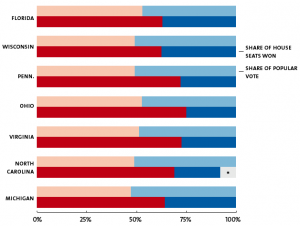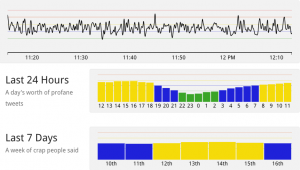Stuff’s headline “Heart drug warning from Kiwi doctor” should perhaps have been “Heart drug reassurance from Kiwi doctor”. It’s not a bad story, but some additional background might be helpful. Or interesting. Or something.
Beta-blockers block part of the body’s response to adrenaline, and are used for several quite different reasons. They were one of the early treatments for high blood pressure, they are given after heart attacks, they are used to treat congestive heart failure (where the heart doesn’t pump effectively), and they are also used occasionally for their ability to block some of the physical symptoms of anxiety (and so are banned as performance-enhancing in some sports). The ‘Kiwi doctor’, cardiologist Chris Nunn, is concerned that a study looking at beta-blocker use mostly for preventing serious heart disease might be misinterpreted by patients taking beta-blockers to treat serious heart disease.
The research study, published in the leading medical journal JAMA, was motivated by concern over the use of beta-blockers after heart attack being generalised to people who had not had a heart attack. The abstract begins
β-Blockers remain the standard of care after a myocardial infarction (MI). However, the benefit of β-blocker use in patients with coronary artery disease (CAD) but no history of MI, those with a remote history of MI, and those with only risk factors for CAD is unclear.
The study is observational. That is, in contrast to the randomised experiments done with people who have had heart attacks or heart failure, this study didn’t assign people to beta-blockers. The researchers just looked at who was and wasn’t taking the drugs, trying to get a fair comparison by matching users and non-users using a technique called propensity scores. The idea behing propensity scores is that you will only get a bias from some other variable if it affects the chance of taking beta-blockers, so you can summarise all the available variables by a single score measuring their influence on the probability of taking beta-blockers. This technique only works if you measure all the relevant variables (which you don’t) and you get exactly the right model for producing the propensity score (which, again, you don’t), so it’s less reliable than random assignments of treatment. Even so, the study results in people who have had a heart attack were pretty consistent with the benefits seen after heart attack in randomised studies.
The results in people who had not had a heart attack are also consistent with randomised trials. Since everyone in the study was seeing a doctor at least at enrollment, most of them were taking high blood pressure medication, and often of more than one kind. One explanation of the lack of benefit from beta-blockers is just that they are less effective on average than some other high blood pressure medications in preventing heart disease and stroke. That is what was found in a combined analysis of randomised trials by a group including me, about ten years ago, and in some other similar analyses.
So. Beta-blockers after heart attack or in heart failure are good. Beta-blockers in people with high blood pressure but not heart disease might be less effective than alternatives, but New Zealand guidelines (eg) already take all this into account, so the new study shouldn’t cause any changes in practice here.


